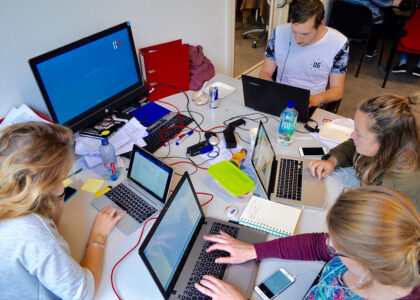Are you ready to take your workshop leadership skills to the next level? In this blog post, we will explore the key components of effective leadership in workshops and how it can make a significant impact on the success of your events.
1. Introduction: Setting the Stage for Success
Workshops are a fantastic way to engage with your audience, share knowledge, and facilitate learning. But without strong leadership, workshops can quickly become chaotic and unproductive. Setting the stage for success starts with having a clear vision, setting goals, and creating a structured agenda.
2. The Importance of Leadership in Workshops
Leadership in workshops is crucial for keeping participants engaged, managing time effectively, and ensuring that the goals of the workshop are met. A strong leader will inspire and motivate participants, facilitate discussions, and guide activities in a way that encourages learning and collaboration.
3. Key Skills for Effective Workshop Leadership
Effective workshop leadership requires a mix of communication, organization, and interpersonal skills. Some key skills include active listening, conflict resolution, time management, and the ability to adapt to different learning styles. A good leader will also be able to delegate tasks, provide constructive feedback, and create a positive and inclusive environment for all participants.
4. Creating a Positive and Engaging Workshop Environment
A positive and engaging workshop environment is essential for fostering creativity, collaboration, and learning. Leaders can create this environment by setting clear expectations, encouraging participation, and providing opportunities for hands-on learning. It’s also important to create a safe space where participants feel comfortable sharing their ideas and opinions.
5. Handling Challenges and Conflict Resolution in Workshops
Challenges and conflicts are bound to arise in workshops, but a strong leader will be able to address them effectively. This may involve mediating disputes, managing difficult personalities, or redirecting conversations that have gone off track. Conflict resolution skills are essential for maintaining a productive and respectful workshop environment.
6. Empowering Participants through Leadership
Empowering participants through leadership means giving them the tools and confidence to take ownership of their learning experience. Leaders can do this by encouraging self-reflection, providing opportunities for skill-building, and fostering a sense of autonomy and independence. Empowered participants are more likely to be engaged and invested in the workshop.
7. The Impact of Strong Leadership on Workshop Success
Strong leadership can have a significant impact on the success of a workshop. When participants feel supported, engaged, and valued, they are more likely to actively participate, collaborate with others, and retain the information presented. A good leader will inspire creativity, foster a sense of community, and ultimately ensure that the workshop achieves its goals.
8. Conclusion: Elevating Your Workshop Leadership Skills
By focusing on key skills, creating a positive environment, and empowering participants, you can elevate your workshop leadership skills and make a lasting impact on the success of your events. Remember, leadership is not about being in charge, but about taking care of those in your charge. So, go forth and lead your workshops with confidence, compassion, and creativity!



